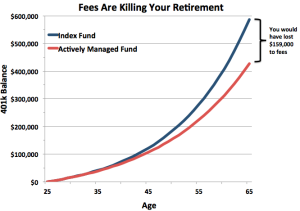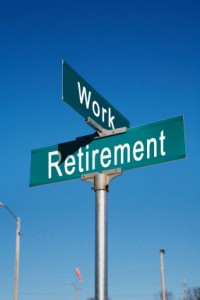 The traditional answer to the question, “how to make sure you have enough money to retire”, used to be 4% and 70%! For starters many planners felt that if you had 70% of your pre-retirment income, you were in good shape. Less expenses such as commuting costs, clothing, lunches etc. meant that you did not need as much income. They also felt that if you withdrew 4% of your assets saved for retirement you had a better than 90% chance of your money lasting for the rest of your life. Many investment advisers are feeling that these rules need to change. Demographics are changing.
The traditional answer to the question, “how to make sure you have enough money to retire”, used to be 4% and 70%! For starters many planners felt that if you had 70% of your pre-retirment income, you were in good shape. Less expenses such as commuting costs, clothing, lunches etc. meant that you did not need as much income. They also felt that if you withdrew 4% of your assets saved for retirement you had a better than 90% chance of your money lasting for the rest of your life. Many investment advisers are feeling that these rules need to change. Demographics are changing.
For example everyone is living longer, men on average now live 19 years after they retire at 65. Women live 23 years on average after 65. Many will also need elder care. In fact 7 in 10 people will need help and will need the funds to pay for the services they receive. Today many also carry debt into retirement, which will need to be planned for as part of their retirement years. Although inflation is well under control and has not matched the high teens back in the 80’s. Inflation still adds up at two or three percent every year. And then there is the cost of health care which is slowly increasing at a rate above the inflation rate. We believe it is time to save more and we have five rules to consider.
How to Make Sure You Have Enough Money to Retire
Here are 5 rules to consider that may be helpful. While it is not fun and exciting, These rules will help answer the question, how to make sure you have enough money to retire.
Track all of your expenses now while you are still working. Identify those that will continue after retirement and make adjustments to your retirement budget accordingly.
Try living as if you are retired now on a 70% budget. You may have to make adjustments to current spending habits and generally adopting a less expensive spending profile.
Increase your savings to a level that can provide you with five or six percent of your annual salary pre-retirement. The more you can save, the better off you will be. Six percent of a million dollars is $60,000 a year. Can you live on that?
Check out your post retirement income. How much will come from social security, how much will come from your company pension? Knowing these numbers, you may find that your current savings may be in line with what you need to retire.
Invest to generate income, diversify, avoid high risk investments and stick to blue chips. Avoid reacting to the market ups and downs. Focus on equities with a strong history of paying dividends, year after year. They should have a history of increasing those dividend every year. Although not guaranteed, these are auto raises for you in the future.






